Posted on 12/19/2022
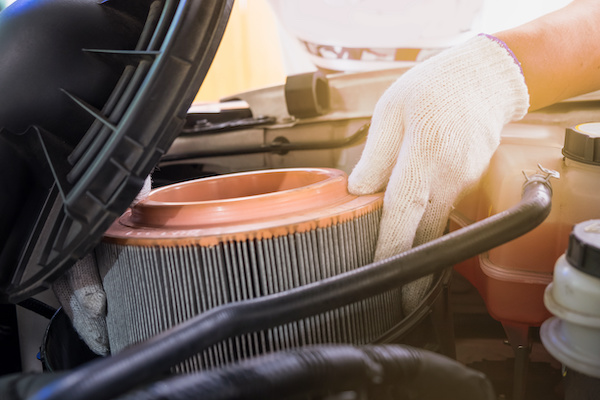
A tune-up can be more than just regular maintenance. Automotive experts suggest this for a reason: your car should be taken to a repair shop before serious issues arise. Following this step can significantly extend the life of your vehicle and how long it can stay on the road. However, it's not always apparent what kind of issues there are. A professional can take a closer look and identify underlying issues that may be brewing under the hood. Here are some signs your vehicle needs a tune-up: 1. The Vehicle Makes Concerning Sounds During Acceleration You should always follow your senses when it comes to detecting vehicle problems. And if a car is making loud knocking noises when accelerating or on steep hills, it can be a sign your engine isn't working optimally. Similarly, if the vehicle idles or accelerates roughly, it could be a spark plug problem. Taking your automobile for a tune-up may let you know more about this issue and point to a needed fix ... read more
Posted on 11/30/2022
.jpeg)
Oxygen sensors were introduced to automobiles in the 70s and 80s, and they are here to stay in our emissions system. This small piece is in charge of monitoring the amount of oxygen running through the engine and unburned oxygen in the exhaust. They can be found near the catalytic converter and in each of the exhaust manifolds. When the sensor reads abnormal amounts of oxygen, it will trigger the check engine light. While it is not common for everybody, oxygen sensors can fail or wear out over time. So, that might be another reason why your check engine light is on. However, low levels or high levels of oxygen can also be cause for concern. The o2 sensors communicate with your electronic control unit (ECU) to compute a balanced air to fuel ratio for your engine to achieve the best performance while still maintaining efficiency. That is why faulty oxygen sensors or poor oxygen levels will ultimately lead to a failed emissions test. Furthermore, you should have a professional me ... read more
Posted on 10/26/2022

The best time to get your car serviced is just before winter, October, and as winter ends in April. Driving during winter is tough on your car and can cause breakdowns if your car is poorly maintained. The last thing you want is your car breaking down in the middle of nowhere during winter. To get ready for this year's winter chill, here are a few things you need to get checked or repaired. Replace or Adjust Windshield Wipers Many drivers forget about their windshields until they need to use them, don't be like most drivers. Check your windshields to ensure your windscreen does not obscure your road view. You may have to replace them if they are worn out or old. Flush Your Antifreeze If you have not had your antifreeze or coolant checked or flushed in a while, now is your chance because it can mean the difference between a working car and a stalled car. Get Your Winter Tires Put in Worn-out tires are hazardous when driving on sleek icy roads because they can cause you to ... read more
Posted on 9/28/2022
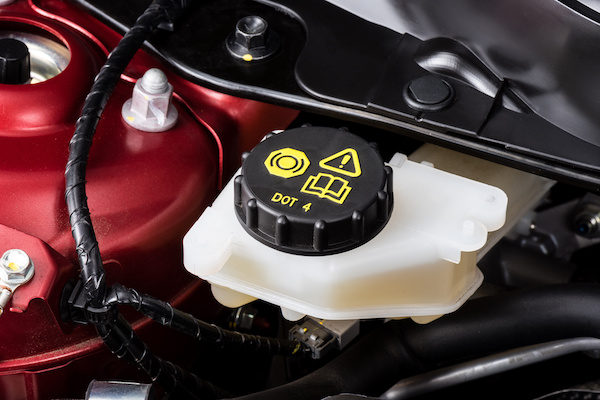
As cars evolve and advance decade after decade, the braking system remains to be one of the most important safety structures in today’s vehicles. If there are any problems with your brake fluid, it can lead to the ultimate failure of the brakes. Today, we will discuss what brake fluid is, what it does, and how to tell when you have a leak. Most cars, SUVs, and trucks have hydraulic braking systems, which include a brake fluid. This liquid flows through the system and transfers the pressure from your foot on the brake pedal to the brakes to slow down your car. Unlike your other car fluids, brake fluid has a very high boiling point to withstand the intense pressure and temperatures from friction. Otherwise, your brakes can be disastrous. Over time, brake fluid can wear down, become contaminated with air or water, and lose its effectiveness. In worst-case scenarios, dirty or contaminated brake fluid can lead to leaks in the brake lines. This is why it is imperative ... read more
Posted on 8/25/2022
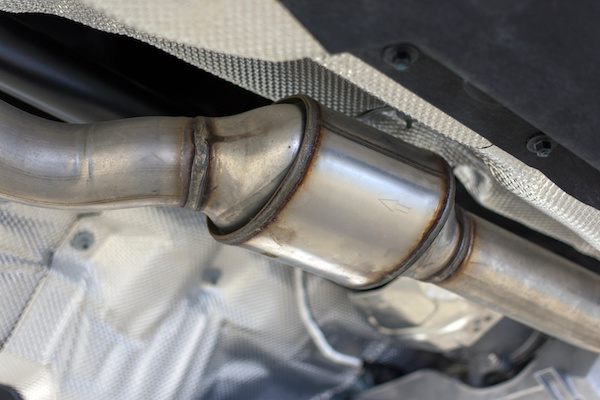
We've all been in a situation where we’ve detected an unpleasant odor in the car before. And if it smells anything similar to rotten eggs, it may actually be your car warning you of a serious problem. There are multiple things that could cause your vehicle to give off a stinky smell. Here are some of the most common causes of a rotten egg smell in vehicles: 1. Sulfur in Gasoline Sulfur is a substance that has the same nasty stench as rotten eggs. This element can naturally be found in crude oil. And it is also a byproduct of the fuel refining process. Nowadays, gasoline has very little sulfur in it. However, gasoline with a more concentrated formula can have more, giving off this unpleasant odor. 2. Clogged Catalytic Converter Another common problem in cars that can produce a really bad smell is a faulty catalytic converter. The catalytic converter is a big component in your emissions/exhaust system that turns harmful engine byproducts into safer ones. When the catalytic ... read more
Posted on 7/25/2022
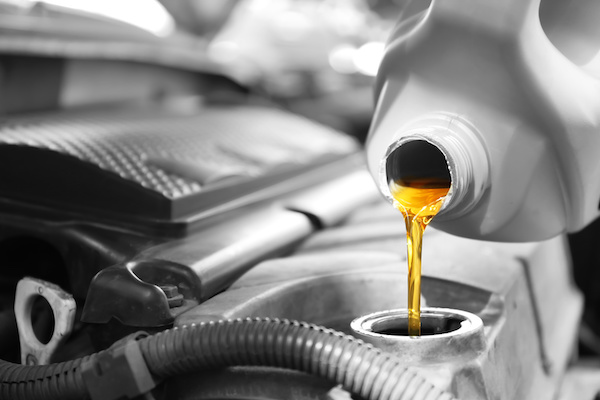
How to Determine When to Change Your Car's Oil You may look at the oil color to determine when your car needs an oil change. The hue of clear oil is frequently amber and transparent. As the oil begins to function, it progressively collects particles, giving it a black appearance. Synthetic Oil An oil type known as synthetic oil is one that has been chemically created in a lab to have excellent performance and consistency in the composition. It lessens friction and endures intense heat. Your car can benefit from its chemical qualities by using less gasoline and running more efficiently. Today, synthetic oil is frequently suggested for automobiles that need to function at their very best. Due to its durability and ability to survive for many miles between changes, synthetic oil is preferred by the majority of drivers. More money is spent on synthetic oil than on regular oil. Less regular oil changes, however, might result in financial savings while preventing futu ... read more
Posted on 6/29/2022
.jpeg)
Even if you swear up and down that you’re the most careful driver, emergencies can still happen. There are aspects of driving that you neither predict nor prevent. When accidents happen, you should be prepared. There are 10 things that every driver should keep in their car emergency kit: First Aid Kit - A first aid kit is a must-have for your car. A small supply of antibiotic ointment, band-aid sizes, tweezers, pain relief tablets, blood stopper compress, etc. could do enough to ease any pain. Jumper Cables - When your battery dies, you’re going to need a set of these to jump-start your car. Multi-tool - The whole point of this tool is that it is versatile. It can assist you from auto repairs to survival. Fire Extinguisher - There are some instances where your car can catch on fire. While this is rare, it does help to have an extinguisher to put out the flames. Spare Tire, Jack, & Wrench - Flat tires happen all the time, and it can be difficult to foresee the ... read more
Posted on 5/6/2022
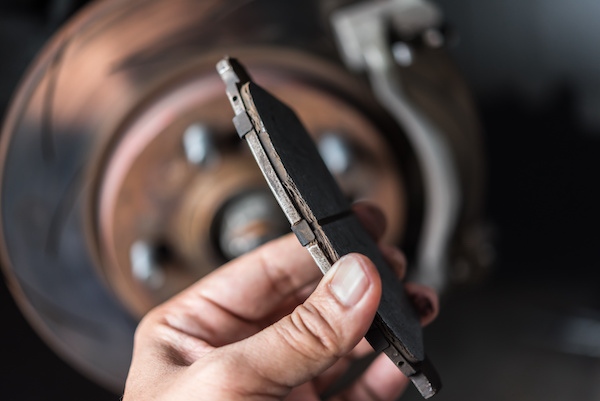
Healthy brakes allow Newport News drivers to reduce their speed and stop their vehicles effectively. However, without proper maintenance of the system, your car may face many dangers. Brake pads are a component that require maintenance often. But, how often are you supposed to replace them? Every automaker has a set interval for brake service, so it varies from car to car. However, you can also be on the lookout for the following signs of worn brake pads: Grinding Sound When Braking There are built-in metal wear indicators on your brake pads that produce a loud sound when they’ve worn down. The sound is essentially a warning or reminder to have your brake serviced. Vibration When Braking If the brake pads are uneven, you may notice vibrations when you press on the brake pedal. To avoid further damage and failing brakes, please bring your car to our shop today. Longer To Stop Car Obviously, if your brake performance is declining, you should consider a brake pa ... read more
Posted on 4/20/2022

Spring is here, and it’s time to start getting your vehicle ready for the warmer weather. Winter tends to take a toll on our cars, so be sure to follow these tips on how to care for your car throughout the spring. Get your Oil Changed Your car's engine oil becomes less effective as it ages, preventing it from protecting your motor. So arrange an oil change at the start of spring to keep your engine in top condition all season long. Battery Efficiency Let's face it; winter can be hard on your car's battery. The lower temperatures cause your battery to work harder. So have a look at yours. Spotting corrosion around the battery's connection points or seeing cracks on the top or side may indicate that it's time for a car battery replacement. Tyre and Tread Overhaul Ensuring your tires are roadworthy is crucial. Worn tires compromise your car's handling in wet weather. To check your correct tire pressure, refer to your vehicle's manual. As for t ... read more
Posted on 3/25/2022

When drivers face car issues, the first thing they usually do after they have pulled over is call a friend or family. But what if they aren't around? And you can't just abandon your car, right? While we understand how stressful a breakdown can be, you may need to face the reality of having to call for a tow. What Incidents Require a Tow? Below are the most common vehicle problems that require a tow: Following a major accident - After an accident, your car may have taken significant damage to its undercarriage or tires, which can put you in harm's way. It can worsen the damage if you keep driving. Empty gas tank - You might've overlooked the low gas light and stretched your car too thin. If you entirely run out of gas, you can call for a tow to supply you with gasoline. A dead battery - Batteries grow old and will eventually die. If you put off replacing it for too long, your car will likely break down and require a tow. A flat tire or blowout - This ... read more